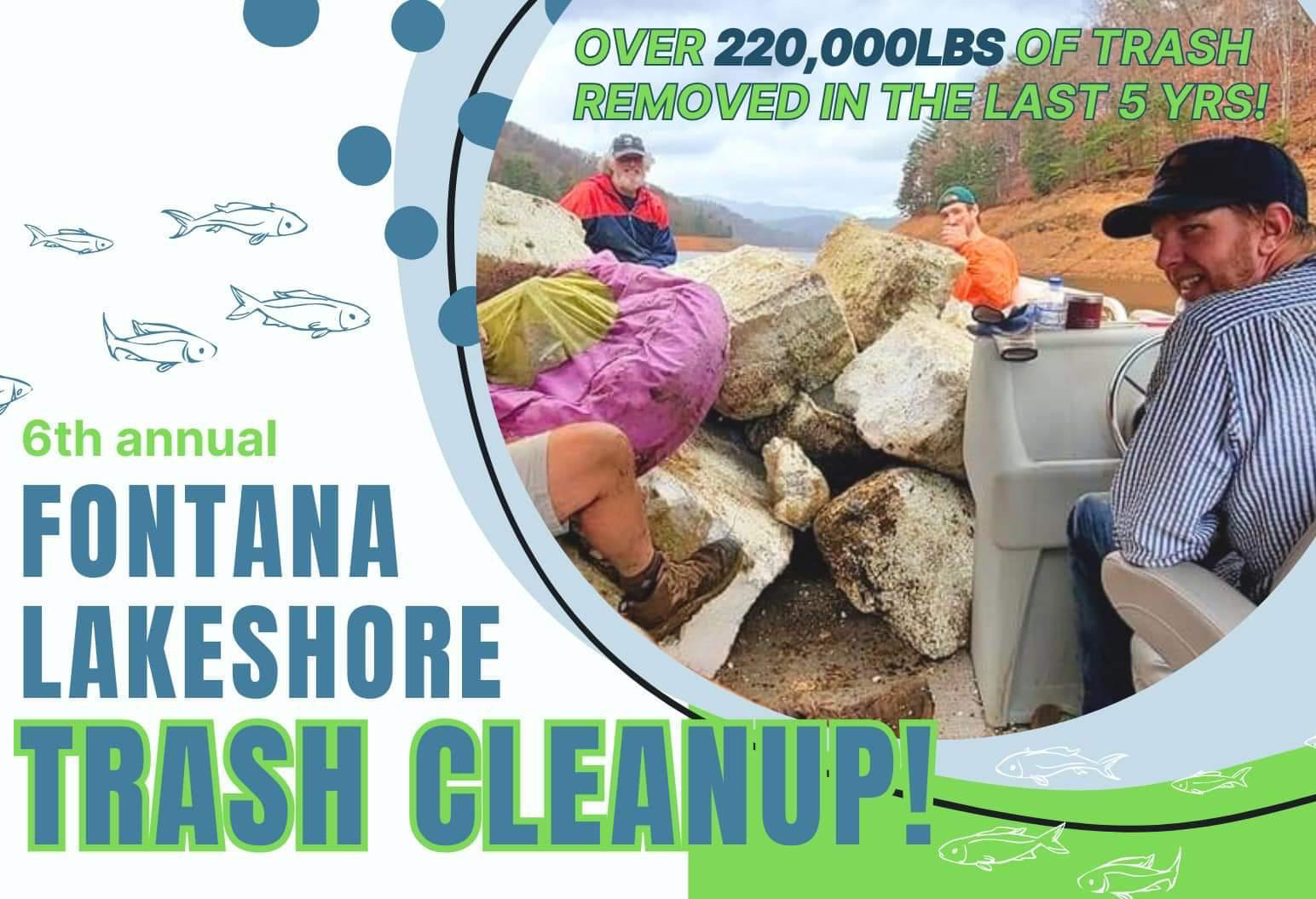
12 Responsible Consumption and Production (58)
Ensure sustainable consumption and production patterns
Don’t hate the diggers. Hate the ginseng game.
Written by Justin Law A ginseng digger works a hollow somewhere in the Appalachians. Traditional ‘sangers’ generally follow centuries-old protocols for sustainable harvest of the plant and pose much less of a threat to ginseng than habitat destruction and extractive industry. Photos from American Folklife Collection/Library of Congress
A ginseng digger works a hollow somewhere in the Appalachians. Traditional ‘sangers’ generally follow centuries-old protocols for sustainable harvest of the plant and pose much less of a threat to ginseng than habitat destruction and extractive industry. Photos from American Folklife Collection/Library of Congress
Wild ginseng is declining, but small-scale ‘diggers’ aren’t the main threat to this native plant — and they can help save it
This article was originally published by The Conversation. Justine Law is an associate professor of Ecology and Environmental Studies at Sonoma State University.
KNOXVILLE — Across Appalachia, September marks the start of ginseng season, when thousands of people roam the hills searching for hard-to-reach patches of this highly prized plant.
Many people know ginseng as an ingredient in vitamin supplements or herbal tea. That ginseng is grown commercially on farms in Wisconsin and Ontario, Canada. In contrast, wild American ginseng is an understory plant that can live for decades in the forests of the Appalachians. The plant’s taproot grows throughout its life and sells for hundreds of dollars per pound, primarily to East Asian customers who consume it for health reasons.
Because it’s such a valuable medicinal plant, harvesting ginseng has helped families in mountainous regions of states such as Kentucky, West Virginia, Tennessee, North Carolina and Ohio weather economic ups and downs since the late 1700s.
Ginseng collection banned in Pisgah, Nantahala national forests
Written by Adam Rondeau The long maturation time of American ginseng makes it susceptible to overharvesting. A ban on collecting the plant in Nantahala and Pisgah national forests remains in place. Illstration: Ohio State Extension Service
The long maturation time of American ginseng makes it susceptible to overharvesting. A ban on collecting the plant in Nantahala and Pisgah national forests remains in place. Illstration: Ohio State Extension Service
Wild populations of the plant remain too low to sustainably harvest
Adam Rondeau is a public affairs specialist with the U.S. Forest Service.
ASHEVILLE — The Forest Service pause on issuing permits to harvest American ginseng in the Nantahala and Pisgah national forests will remain in place for the 2024 season.
Efforts to restore ginseng populations on both national forests continue. However, wild populations of the plant currently remain too low to sustainably harvest for the foreseeable future. The plant is known as both a folk and medical remedy and preventative for myriad ailments.
“We stopped issuing permits for ginseng harvesting in 2021, when the data began to show a trend toward lower and lower populations each year,” said Gary Kauffman, botanist for the National Forests in North Carolina. “We’re seeing that trend reversing slightly, but ginseng plants take a long time to mature before they reach the peak age to start bearing seeds.”
Native to Western North Carolina forests, wild ginseng is a perennial plant that can live for 60-80 years. It can take up to 10 years before a ginseng plant will start producing the most seeds; however, overharvesting in the past has made older plants increasing rare.
Get plugged in to the facts about electric vehicles during SACE webinar

KNOXVILLE — You’re invited to join a Southern Alliance for Clean Energy webinar, “Understanding EVs: Real People Share Real Stories of Electrifying Their Ride,” at 11:30 a.m. Thursday, Aug. 29.
A panel of electric vehicle (EV) owners and drivers will share stories and insights from their experiences with EVs. Learn more about what it’s like to own, charge, travel and save money with an EV, plus hear advice from real people who have gone electric! Panelists for this webinar will include:
-
EVNoire Associate Director Tarique André Miller, on EV charging levels and networks, best practices on charging, maintenance cost savings, plus EV incentives and opportunities for all
- SACE Electric Transportation Equity Manager Madelyn Collins and East Tennessee Clean Fuels Community Engagement Liaison Wesleigh Wright, on what they learned about EV range and community charging during their first ever EV road trip
-
SACE volunteer Sara Vinson, on purchasing an EV, using federal tax credits to save money on an EV, and benefiting from the low maintenance of EVs (including her vow to never get an oil change again!)
Bruderhof manufactures sustainable community in Monroe County
Written by C. Don Jones Hiwassee Bruderhof builds vermicomposting equipment at its manufacturing facility on the grounds of what was Hiwassee College in Monroe County, Tennessee. Hiwassee Products
Hiwassee Bruderhof builds vermicomposting equipment at its manufacturing facility on the grounds of what was Hiwassee College in Monroe County, Tennessee. Hiwassee Products
Intentional Christian community settles into old Hiwassee College campus
HIWASSEE — We gathered in the old Hiwassee College theater to see “Common Ground” and hear from one of the farmers featured in the film.
Members of the new Bruderhof (from the German word, a place of brothers) community in Monroe County sat with us for the screening.
A few folks asked me: “Are you a farmer?”
“No, I am a United Methodist pastor,” I replied. The community is on the old Hiwassee College campus. The Holston Conference closed the college in 2019 and then sold the property to the Bruderhof in 2021
One older gentleman said, “I hoped to sit with a farmer.” I understood that. The community, in addition to being a self-supporting Christian Intentional Community, hoped to sell some of its new equipment to local farmers. Hobby gardeners, like me, would not want to invest the money in the new tools being offered.
Not just a bougie supper club: Slow Food returns, patiently, to mountains
Written by Élan Young Slow Food Tennessee Valley co-founder Sarah Bush picks heirloom tomatoes at Vuck Farm in Riceville. Élan Young/Hellbender Press
Slow Food Tennessee Valley co-founder Sarah Bush picks heirloom tomatoes at Vuck Farm in Riceville. Élan Young/Hellbender Press
Slow Food ramps up regional food resilience efforts
RICEVILLE — On a hot summer day in late June, Sarah Bush, co-founder of Slow Food Tennessee Valley, slices some varieties of tender heirloom tomatoes freshly picked from tall rows of plants strung up in a giant, covered hoop-style greenhouse before serving them on a cutting board with a bit of farm-fresh chevre and basil.
The tomatoes span hues of yellow, red, green and purple, some a solid color or slightly striped and bearing intriguing names not found in grocery stores: striped Heart, Cherokee evergreen, chocolate stripe and Valencia. The flavor combinations explode into farm-to-table bliss.
The tomatoes are especially terrific for a reason: Bush, 46, has practiced regenerative farming since she was 28.
Mentored by other small farmers around the country who taught her how to exist and thrive in an economy that favors Big Ag, she now splits her time between Vuck Farm, a biodynamic farm in Riceville owned by her partner TJ Teets, and managing the produce department at Three Rivers Market in Knoxville — Tennessee’s only cooperative grocery.
She also serves on the planning committee for CRAFT (Collaborative Regional Alliance for Farmer Training), which is run by the Southeastern Tennessee chapter of the National Young Farmers Coalition.
Not a bougie supper club
Founded in 2008, the Tennessee Valley chapter of Slow Food is the only chapter in the state that has remained active since its founding.
A little more than two decades earlier in 1986, thousands of Italians gathered at the base of the sprawling Piazza di Spagna in the center of Rome to protest the country’s first McDonald’s restaurant. Slow Food’s founder, Italian journalist Carlo Petrini, was among them. Instead of bringing a sign with a slogan, Petrini brought a big bowl of penne pasta to share with the crowd chanting We don’t want fast food. We want Slow Food! Three years later the movement became an official organization and today spans 160 countries.
- three rivers market
- collaborative regional alliance for farmer training
- vuck farm
- national young farmers coalition
- alice waters
- wendell berry
- slow food
- tennessee agriculture enhancement program
- terra madre
- slow food of tennessee valley
- sarah bush
- old city garden
- jim embry
- university of tennessee institute of agriculture
- pesto festo
- ark of taste
- tj teets
- riceville
- small farmer
- farmland loss
- young farmer
- regenerative farming
Water supply demands could strain Duck River’s rare riverine habitat
Written by Anita Wadhwani John McEwan, whose family has lived on the banks of the Duck River since the 1860s, skips stones on the Duck River. Environmental groups fear excessive demand is fueling drawdowns that are affecting the rich biodiversity of the Middle Tennessee river.&nsp; Tennessee Lookout/John Partipilo
John McEwan, whose family has lived on the banks of the Duck River since the 1860s, skips stones on the Duck River. Environmental groups fear excessive demand is fueling drawdowns that are affecting the rich biodiversity of the Middle Tennessee river.&nsp; Tennessee Lookout/John Partipilo
Long time residents and conservation groups say industry lured by the state, population growth are draining water from a river prized for its biodiversity
This story was originally published by Tennessee Lookout.
COLUMBIA — When Gov. Bill Lee announced the state had lured a General Motors lithium battery supplier to Spring Hill three years ago, it was his largest economic announcement to date:
A $2.6 billion corporate investment; 1,300 new jobs; a major stepstone along Tennessee’s path to become an EV hub — helped along by a then-record $46,000 per job in taxpayer incentives.
The factory deal’s less conspicuous specs — its continuous need for 1.4 million gallons of water per day — is now figuring in a larger battle pitting citizens and conservation groups against state environmental regulators.
Last month, the Tennessee Department of Environment and Conservation (TDEC) granted permission to Columbia Power and Water Systems — which pumps water to the new Ultium Cells plant — to increase its current withdrawals from the Duck River by 60 percent.
It’s one of eight water companies along the Duck River seeking to dramatically increase water draws to meet rising demands for water in the rapidly growing five-county region southwest of Nashville.
- duck river
- duck river biodiversity
- tennessee lookout
- middle tennessee environment
- lithium batteries
- gov bill lee environment
- john mcewan
- hickman for the duck
- ultium cells plant water use
- doug jones duck river
- anita wadhwani
- water demand
- water supply
- economic growth
- general motors
- southern environmental law center
- tennessee department of environment and conservation
- tdec
- columbia power and water systems
- spring hill, tn
- george nolan
Tennessee’s mighty Duck River is gravely imperiled
Written by Anita Wadhwani A view of the Duck River, Tennessee longest river, from Old Stone Fort in Manchester. John Partipilo/Tennessee Lookout
A view of the Duck River, Tennessee longest river, from Old Stone Fort in Manchester. John Partipilo/Tennessee Lookout
The Duck landed third on American Rivers’ list of most endangered rivers in the U.S.
This story was originally published by Tennessee Lookout.
COLUMBIA — The Duck River, which winds through seven Middle Tennessee counties for more than 260 miles before reaching the Tennessee River, is among the most endangered rivers in the United States, according to a new report by the advocacy group American Rivers.
Threatened by population growth, development and climate change “urgent action is needed to safeguard this vital ecosystem,” the report released Tuesday said.
The Duck River serves as the source of drinking water for nearly 250,000 Tennesseans. Industry and agriculture depend on it, too. Often considered one of Tennessee’s most pristine waterways, it draws more than 150,000 people each year for boating, fishing and other recreation. Last year, in an effort to protect the river from a controversial plan to establish a landfill near its banks, state lawmakers designated a portion of the river in Maury County an official state scenic waterway.
Chattanooga Earth Day Week continues
AMERICA RECYCLES DAY November 15


America Recycles Day® (ARD), a Keep America Beautiful national initiative, is the only nationally-recognized day dedicated to promoting and celebrating recycling in the United States.
When: Wed. Nov. 15, 2023 / 3 – 6 pm
Where: UT Surplus/Warehousing
2111 Stephenson Dr, Knoxville, TN
ONE DAY to educate.
ONE DAY to motivate.
ONE DAY to make recycling bigger & better.
America Recycles Day by the numbers
In the past year, our hard-working volunteers and affiliates have recycled:
2,335,135+ pounds of mixed paper
1,492,898+ pounds of electronics
535,918+ pounds of beverage containers
157,958+ pounds of clothing/textiles
1,899,869+ pounds of single-stream recycling
6,056,816+ pounds of other recycled materials
And more.
In total, we’ve recycled over 16.5 million pounds of recyclables and counting.
Find out more about sponsoring an event or finding one in your area by visiting https://kab.org/our-signature-programs/america-recycles-day/ard-faq/
Annual Fontana lakeshore trash cleanup Nov. 3 - 5
Written by Hellbender Press
Volunteers needed
Lake Fontana needs help cleaning up the shoreline trash. Led by Brandon Jones, Harbor Master at the Fontana Village Marina, this event is one of the most extensive cleanups on national park lands.
Jones won the 2023 Governor’s Conservation Achievement Award as the Public Lands Conservationist of the Year for his efforts. He has launched successful cleanup efforts for Lake Fontana in western North Carolina, where volunteers, park rangers and community members have come together for the last five years to remove more than 200,000 pounds of garbage from the lake and the Great Smoky Mountains National Park shoreline.
Through partnerships with organizations like the North Carolina Wildlife Federation and Mainspring Conservation Trust, the initiative has made a significant impact and inspired others to take ownership of the cleanup, making it the most extensive cleanup on national park lands.
More...
Residential glass collection program to launch in November, as Knoxville startups tackle sustainability
Written by MaryBeth Mahne KnoxFill founder Dr. Michaela Barnett was recently featured on WUOT to address trash and sustainability. KnoxFill
KnoxFill founder Dr. Michaela Barnett was recently featured on WUOT to address trash and sustainability. KnoxFill
This article was originally published on WUOT in a collaboration with students from the University of Tennessee's Department of Journalism and Media
Two Knoxville-based startups are tackling the challenges of waste and sustainability, one household at a time
KnoxFill, founded by Dr. Michaela Barnett, is the city’s only refillery, and provides household and food products, ranging from shampoo and laundry detergent to coffee and tea.
Vitriform3D, a 3D printer technology focused on using glass waste and converting it into architectural building products, was founded by Alex Stiles, PhD and Dustin Gilmer, PhD.
Both businesses are filling a void left by a lack of state and local policies to address sustainability issues, and by the logistics challenges of recycling. “We know from the science that recycling can be part of a sustainable waste management program, but it really comes after trying to reduce source waste,” Barnett said. “Recycling really should be a last resort.”
Vitriform3D offers consumers the chance to recycle, and know that their recyclables are also being re-used. Knoxville has long lacked easy glass recycling capabilities; currently, residents have to transport their own glass to one of five repositories around the city. “We’re launching a service we call Fourth & Glass, Stiles said. “That is Knoxville’s first dedicated glass only recycling program. We do have the equipment to handle glass and turn it into new products.”
- knoxfill
- dr michaela barnett
- vitriform3d
- dustin gilmer
- alex stiles
- fourth & glass
- wuot
- glass recycling
- recycling in knoxville
- residential glass
- waste management
- knoxville
- extended producer responsibility
- single use plastic
- singlestream recycling
- glass processing
- 3d printing with glass
- waste management policy
Appalachian State Energy Center is crushing it with biochar
Written by Hei-Young Kim Community biochar production in Boone. Appalachian State Energy Center
Community biochar production in Boone. Appalachian State Energy Center
Appalachian State University research helps farmers and crop yield
This article was provided by Appalachian State University. Hei-Young Kim is laboratory manager and research assistant with the Appalachian Energy Center.
BOONE — The Appalachian State Nexus Project experiments continue to advance agricultural innovations with biochar to help local farmers. Biochar is a charcoal-like material produced from plant material such as grass, agricultural and forest residues that produce carbon-rich material used for agriculture and horticulture purposes.
Adding biochar to soil increases surface area, pH, plant nutrient availability, and enhances water-holding capacity, according to Appalachian State researchers. It also can sequester carbon in the ground for extended periods of time, which may otherwise find its way into the atmosphere as CO2 or methane.
The qualities of biochar vary depending upon the material it comes from — timber slash, corn stalks or manure.
SELC settlement protects blue-blood horseshoe crabs and their avian dependents
 Red Knot.
Red Knot. Chuck Homler
CHARLESTON — A landmark settlement prohibits horseshoe crab collection on the beaches of more than 30 islands along the South Carolina coast that are established feeding sites for rufa red knots during their annual migration — as well as any harvesting in Cape Romain National Wildlife Refuge — for at least five years.
Every spring, red knots time their 9,300-mile migration from South America to the Canadian Arctic perfectly so they stop on the same beaches of South Carolina at the exact moment horseshoe crabs begin to spawn.
These protein-rich crab eggs are critical for red knots, providing the fuel they need to complete their transpolar journey. This delicate relationship between horseshoe crabs and red knots has developed over millions of years.
ORNL scientists are plugging big leaks in the plastics recycling stream
Written by Ben Pounds ORNL polymer scientists Tomonori Saito, left, and Sungjin Kim upcycled waste plastic to create a stronger, tougher, solvent-resistant material for new additive manufacturing applications. Ben Pounds/Hellbender Press
ORNL polymer scientists Tomonori Saito, left, and Sungjin Kim upcycled waste plastic to create a stronger, tougher, solvent-resistant material for new additive manufacturing applications. Ben Pounds/Hellbender Press
Thanks to an East Tennessee science powerhouse, recycling might become easier
This is the first in a series about ORNL’s Technology Innovation Program 2023
OAK RIDGE — Researchers at Oak Ridge National Laboratory developed a catalyst they say can break down a range of plastics, including polyesters, polycarbonates, polyurethanes and polyamides through a low-energy green process. In lay terms, the process can recycle many plastic-based carpets, ropes, other textiles, bottles, mattresses, protective equipment, car components and other things that weren’t previously easy to recycle into valuable chemicals.
Tomoronori Saito, a researcher at ORNL’s chemical sciences division presented some results of research at ORNL on July 14 as part of a symposium highlighting commercially valuable work that takes place at one of the country’s main science laboratories. Saito and fellow researcher Arif Arifuzzaman showed off plastics in varying levels of disintegration using their catalyst. It was part of the lab’s Technology Innovation Program 2023, promoting the lab’s research for possible business partnerships.
